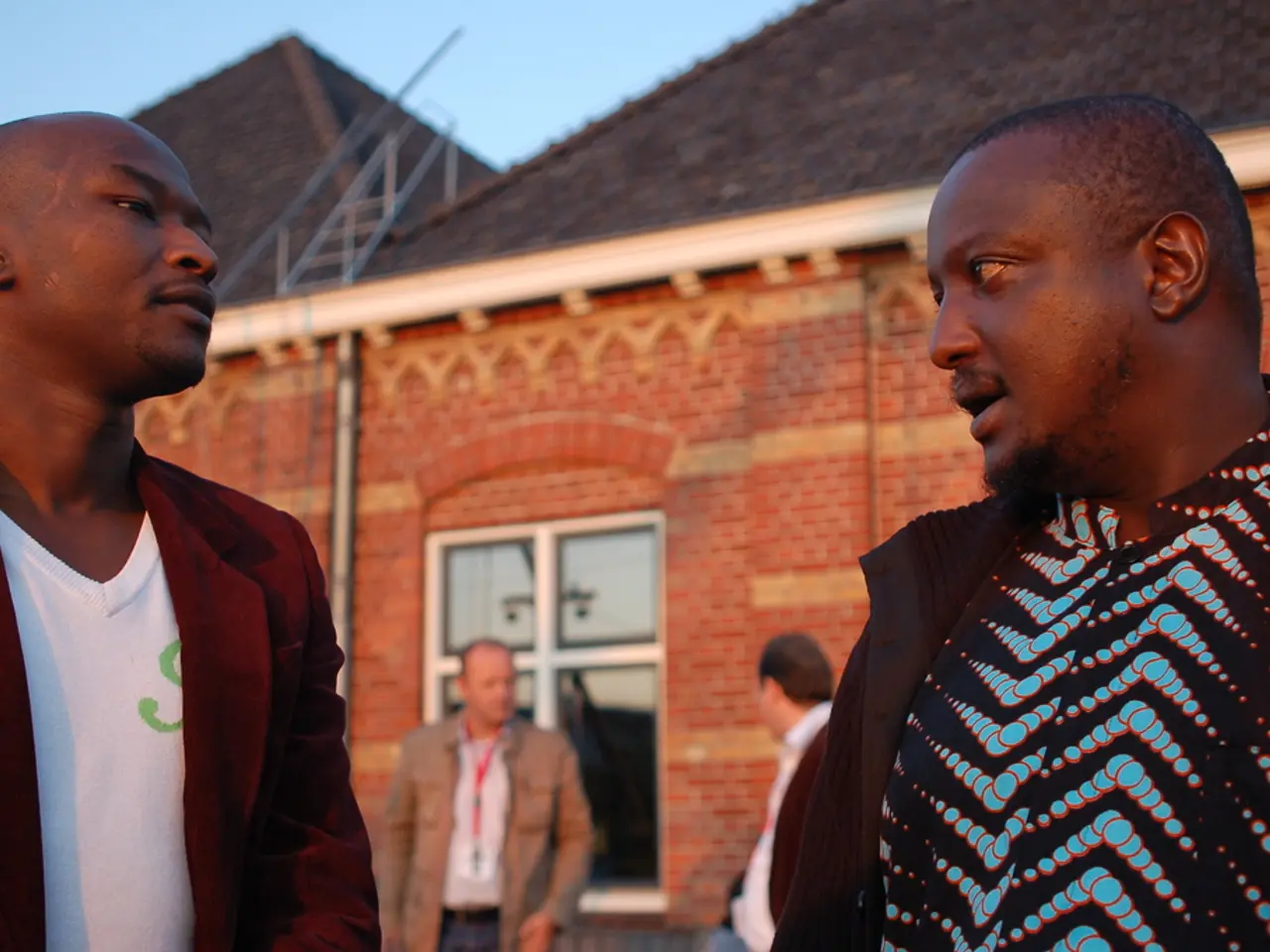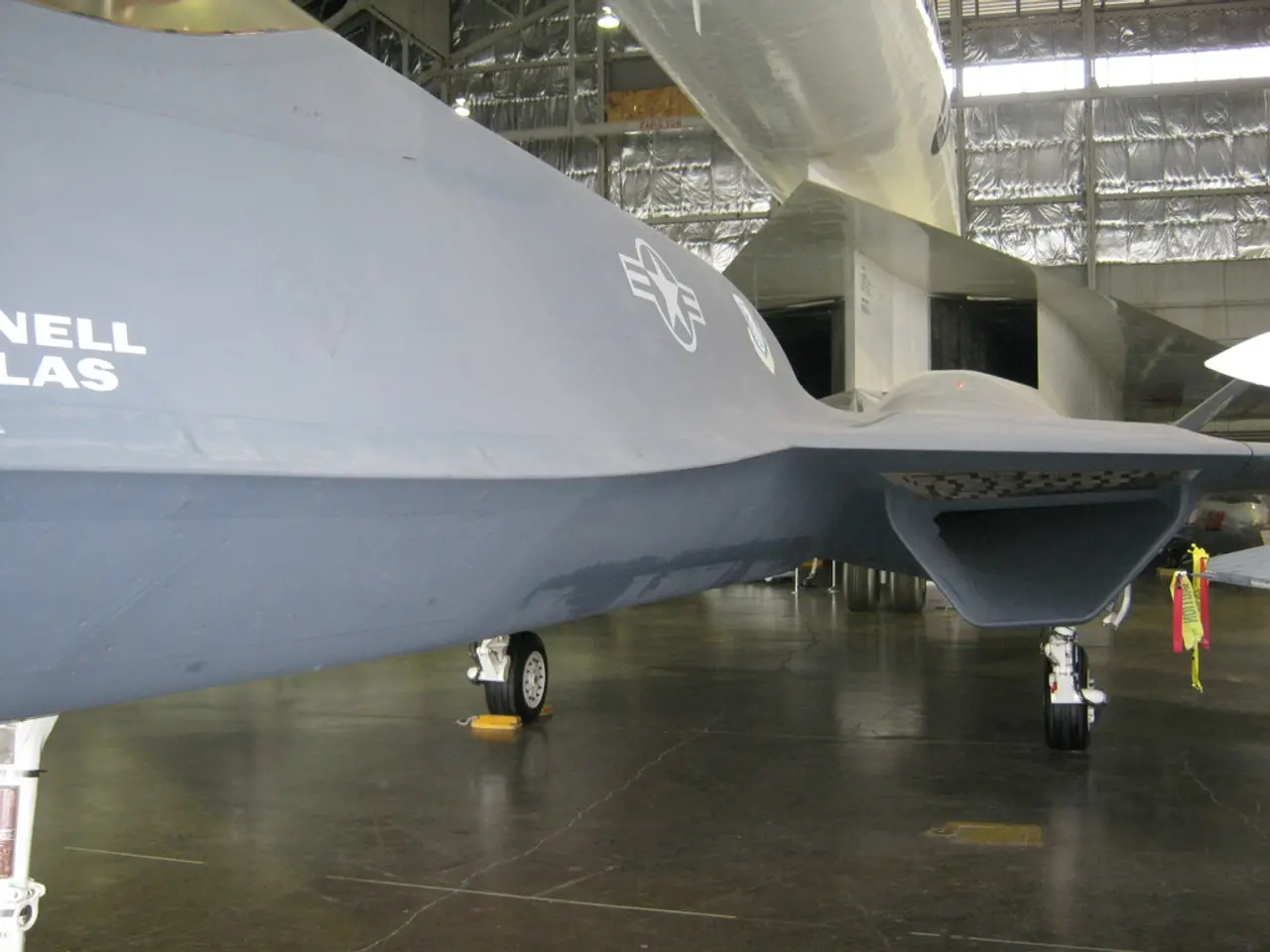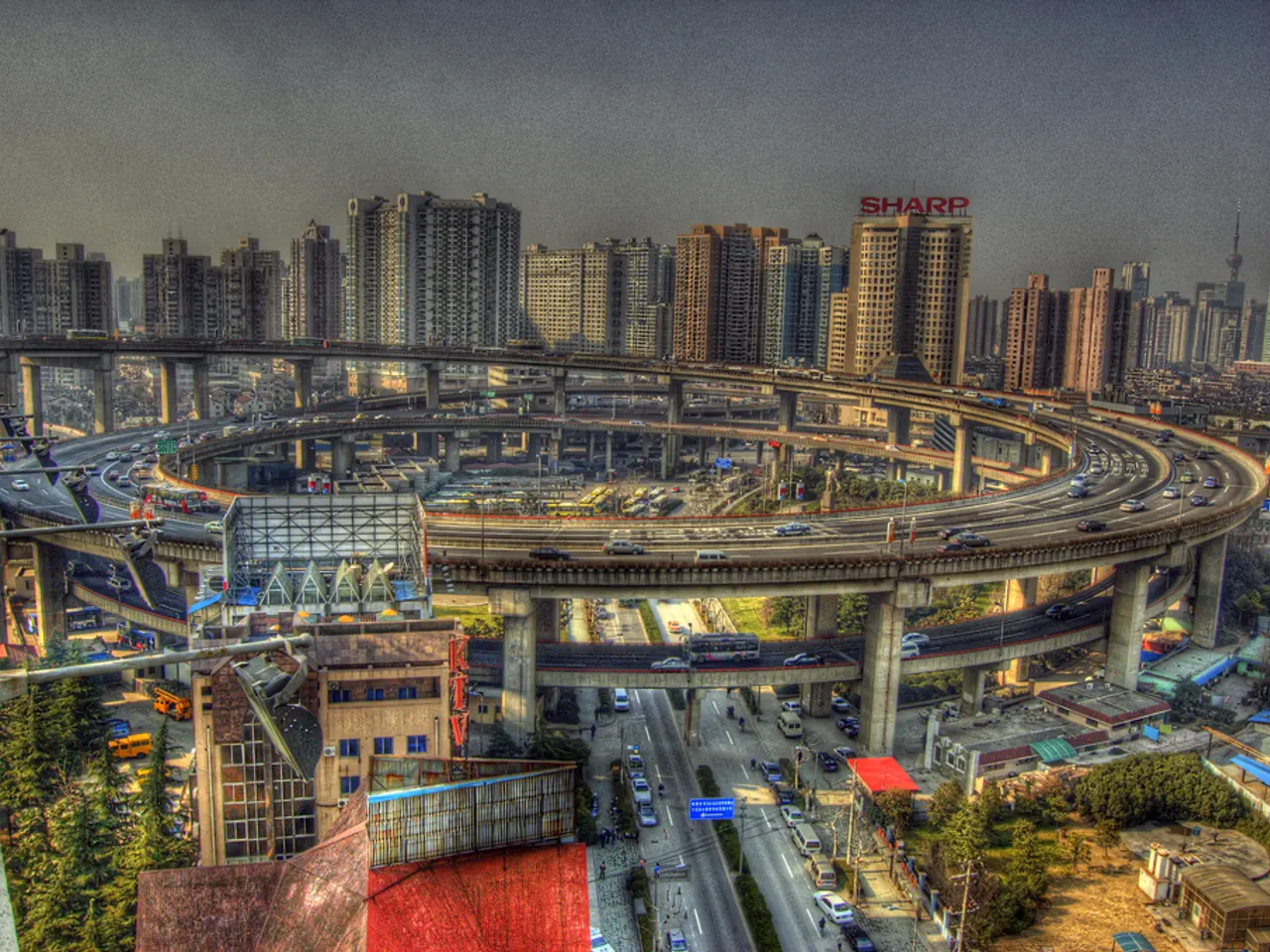United States Imposes Increased Tariff Rates on African Goods
In a series of recent developments, African nations have been grappling with the impact of U.S. tariffs, causing economic hardships and prompting strategic shifts in trade relationships.
The value of active investments in southern Africa's venture capital space rose by a quarter, to about $745 million, as the continent seeks to bolster its economic resilience [1]. This growth in investments, across a record 224 deals last year, indicates a promising trend for startups in the region [1].
However, the U.S. tariffs have not been without consequence. South Africa, the continent's largest economy, faces a 30% tariff on its exports, a significant blow given its reliance on U.S. markets for vehicles, steel, and agricultural products [1]. Lesotho, a small nation heavily dependent on its textile industry, faces a 15% tax on its exports due to the tariffs [1]. In a bid to address this threat, Lesotho has declared a state of emergency [1].
The U.S. President Donald Trump slapped a 30% duty on imports from South Africa, a move that South Africa's Trade Minister called a serious blow [1]. African governments have responded diplomatically, acknowledging the risks of relying on a single trade partner [1]. South African President Cyril Ramaphosa, for instance, emphasized the need to reduce dependency on U.S. trade [1].
African authorities have also signaled a need to create new regional and global trade deals that bypass the U.S. [1]. This strategic contemplation comes as African countries prepare for new tariffs, with Angola raising the price of diesel by more than 33% this month, leading to steep rises in the cost of public transport and staple food [1].
Not all African nations have been as severely affected. Analysts have noted that because there is relatively little trade between the U.S. and Africa, the continent is unlikely to be as badly affected as other regions [1]. Kenya, East Africa's biggest economy, for instance, faces only a 10% duty [1].
In a positive development, South Africa's central bank lowered its inflation target from 4.5% to 3%, a move that Razia Khan, chief economist for Africa and Middle East at Standard Chartered, called a "significant macroeconomic positive" [1]. This decision could help stabilize the South African economy amidst the challenges posed by the U.S. tariffs.
Meanwhile, in Côte d'Ivoire, President Alassane Ouattara announced his intention to run for a fourth term in the country's October elections [1]. This decision has sparked controversy, with Ouattara previously stating he would step down but later signaling his desire to continue at the helm of Francophone West Africa's biggest economy [1].
In conclusion, the U.S. tariffs have led to direct economic hardships in affected African countries, causing job losses and export difficulties. However, African authorities are responding with strategic foresight, seeking diversified trade relationships to mitigate overreliance on U.S. markets. This shift towards regional and global trade deals could pave the way for a more resilient and self-sufficient African economy in the future.
References: [1] BBC News. (2021, June 21). US trade tariffs: Africa hit by Trump's tariffs. https://www.bbc.com/news/business-57604304 [2] Reuters. (2021, June 21). African nations brace for U.S. tariffs as job losses mount. https://www.reuters.com/world/africa/african-nations-brace-us-tariffs-as-job-losses-mount-2021-06-21/
The unforeseen consequences of U.S. tariffs have extended to the finance industry, as the South African central bank reduced its inflation target in an attempt to stabilize the economy [1]. This adjustment, seen as a "significant macroeconomic positive," could help mitigate economic challenges resulting from the tariffs [1].
In response to the tariffs in the energy sector, some African nations, such as Angola [1], have had to increase the price of essential resources like diesel, causing a ripple effect of increased costs for transportation and food [1]. This situation underscores the vulnerability of the continent's industry and business sectors to external financial developments.
The escalating trade tensions between the U.S. and Africa have not been confined to the industry and finance sectors; they have also influenced the political landscape [1]. For instance, the declaration of a state of emergency in Lesotho, due to the tariffs, highlights the potential impact of such policies on regional politics [1]. Furthermore, the political landscape of Côte d'Ivoire has been shaken by President Alassane Ouattara's controversial decision to seek a fourth term in office [1].




